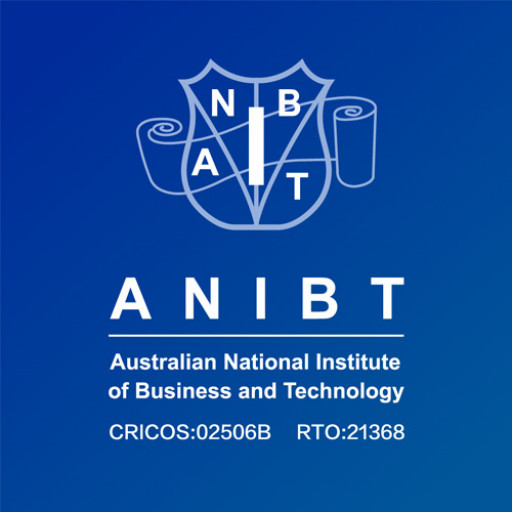Photos of university / #uniofadelaide
Now's marketplace for the social venture is overcrowded. There are many rewarding initiatives seeking property, grants and the city buck. Within this competitive atmosphere, innovation and entrepreneurship are emerging as key to gaining not-for-profit funding. Our Graduate Certificate in Social Entrepreneurship and Innovation is designed for: budding social entrepreneurs knowingly planning to set up partnerships; people in not-for-profit organisations that need to improve social outcomes; those in government or local authorities accountable for enhancing and encouraging the social business; social workers, ecological activists, non-profit business managers, regional economic development officers, arts administrators, native administrators, philanthropists, and/or purely normal resource managers.
The Bachelor of Social Entrepreneurship and Innovation at The University of Adelaide is a forward-thinking degree designed to equip students with the skills, knowledge, and mindset necessary to create and sustain positive social change. This innovative program combines the fundamentals of entrepreneurship with a focus on social impact, fostering students’ ability to develop innovative solutions to complex societal challenges. Throughout the course, students will engage in a diverse curriculum that covers areas such as social enterprise development, sustainable business models, ethical leadership, social innovation methodology, and community engagement.
The program places a strong emphasis on practical experience, encouraging students to participate in real-world projects, internships, and collaborations with community organizations, startups, and social enterprises. This experiential learning approach ensures students can apply theoretical concepts to actual social issues, developing skills in problem-solving, project management, and stakeholder engagement. Courses also focus on innovative research approaches, digital transformation, and the application of technology for social good.
Students will explore topics such as social impact measurement, ethical decision-making, and social entrepreneurship financing, which are critical for sustaining social ventures. Additionally, the program emphasizes the development of entrepreneurial mindsets, including creativity, resilience, and strategic thinking, enabling graduates to start their own social enterprises or lead initiatives within existing organizations.
The Bachelor of Social Entrepreneurship and Innovation prepares graduates for diverse careers, including social enterprise founder, social impact consultant, nonprofit manager, or innovation specialist. The program also encourages a global perspective, highlighting international case studies and opportunities for study abroad. Graduates will be equipped to lead change in various sectors—government, business, and nonprofit—driving societal progress through innovative solutions. This comprehensive program aims to foster socially responsible leaders who are committed to making a tangible difference in their communities and beyond.
Domestic students apply through SATAC. Please be aware this app is not available to international students.
The University of Adelaide offers various financing options for students enrolled in the Social Entrepreneurship and Innovation program. Domestic students can access a range of scholarships, including merit-based and need-based grants, which are designed to support their academic pursuits and alleviate financial burdens. Commonwealth Supported Places (CSP) are available for eligible students, significantly reducing the tuition fees compared to full-fee-paying places. Students may also consider external scholarships and financial aid programs provided by government agencies, private organizations, and industry partners aligned with social entrepreneurship initiatives.
For international students, tuition fees are generally higher, but they can explore scholarships specifically aimed at international applicants, such as the University of Adelaide International Scholarships. These scholarships often cover partial or full tuition costs and are awarded based on academic achievement and potential contributions to social innovation sectors. Additionally, students can access student loans and payment plans where available, allowing them to manage their finances more flexibly throughout their studies.
The university also provides financial advice and assistance through its student services, guiding students on budgeting, financial planning, and accessing external funding opportunities. Some students may choose to supplement their income through part-time employment, either on campus or within the local community, which the university supports through career services and job placement programs.
Research funding and grants for postgraduate research students may also be accessible, depending on the nature of their project and partnership with industry or government bodies. The goal of these financing options is to ensure that students from diverse economic backgrounds can pursue their passion for social entrepreneurship and innovation without undue financial hardship. Overall, the financial landscape for students in this program at the University of Adelaide is comprehensive, designed to promote accessibility and support for social change-driven education and research.
The University of Adelaide offers a comprehensive program in Social Entrepreneurship and Innovation designed to equip students with the skills and knowledge necessary to develop sustainable solutions for social challenges. This program emphasizes a multidisciplinary approach, integrating principles of business, social sciences, and community development to foster innovative thinking aimed at social impact. Students will explore concepts such as social enterprise models, impact measurement, and innovative financing mechanisms, preparing them to lead initiatives that address complex societal issues. The curriculum includes practical projects, case studies, and opportunities for real-world engagement with social enterprises, NGOs, and government agencies. Through this program, students gain critical skills in problem-solving, strategic planning, and stakeholder engagement, which are essential for creating scalable social innovations. The program also encourages entrepreneurial mindset development and ethical leadership, emphasizing the importance of sustainability and social responsibility. Graduates will be positioned to work across a variety of sectors, including social enterprise development, community organizations, public policy, and consultancy roles focused on social impact. The University of Adelaide’s emphasis on research and community partnership ensures that students are exposed to current challenges and innovative solutions within the social sector. The program is suitable for individuals passionate about creating positive social change who wish to acquire the practical skills and theoretical foundation to make a difference. Upon completion, students will be prepared to design, implement, and evaluate social ventures that contribute to societal well-being, fostering an inclusive and sustainable future. The program also benefits from the university’s strong network of industry contacts and partnerships, providing valuable opportunities for internships and collaborative projects. Overall, the Social Entrepreneurship and Innovation program at the University of Adelaide aims to cultivate changemakers who are equipped to address pressing social issues with innovative, ethical, and sustainable solutions, contributing to local, national, and global communities.






